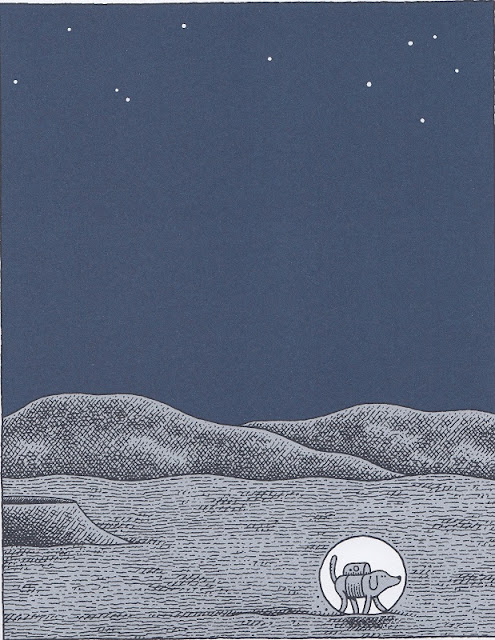Mooncop is about a cop, on the moon. Shit, I used that line to open myreview of this book 6 years ago. Eh, it's a good line. It stays.
Whatever the unnamed officer's dreams about the moon were, the reality is that his life is very dull. Gauld includes a lot of silent panels of the cop moving across the lunar surface in his aircar. Most of the buildings are dark. If he passes a lunarbus, there's at most one passenger. The story introduces characters: a girl playing in an area she's not supposed to, an elderly woman with a dog, the curator of the museum.
One by one, those characters leave and the officer is left questioning the point of his presence. The sole exception is a young lady assigned to the doughnut shop. (Neither she or the cop are ever named, though most of the other characters are, curiously.) The shop was previously an automated kiosk, but somehow, amid the exodus, got upgraded. It's a disconnection between the people living on the Moon and those on Earth. Gauld draws everything in profile, discouraging us from getting too involved with the officer's growing feeling that nothing he's doing matters and nothing is really working out right. We're spectators, sitting back and watching it all play out.
But life on the moon, as presented here, feels very isolated. Most of the officer's time is spent in a sealed spacesuit, whether on patrol in his car or on foot. He can lose the helmet at least inside buildings and talk with others more readily, but those scenes are always brief. Soon enough, he's sealed up and sealed off again, unable to reach anyone as all these people he knows keep leaving him behind.
The book ends on a hopeful note, that someone with a fresh perspective can help you appreciate your situation.

No comments:
Post a Comment